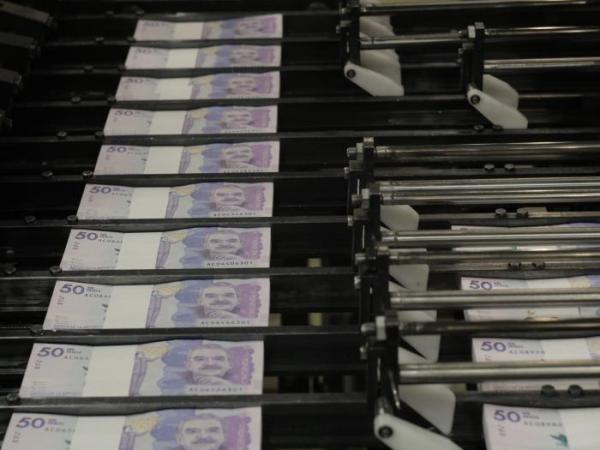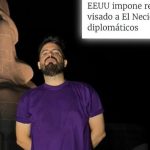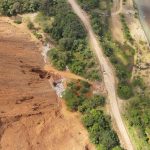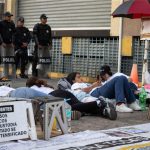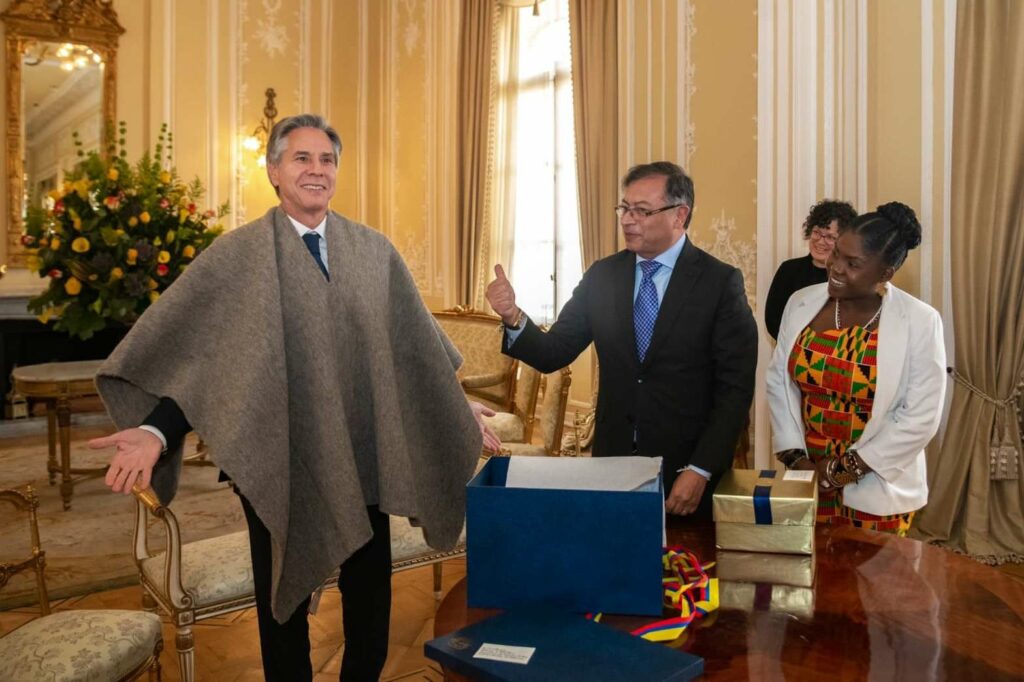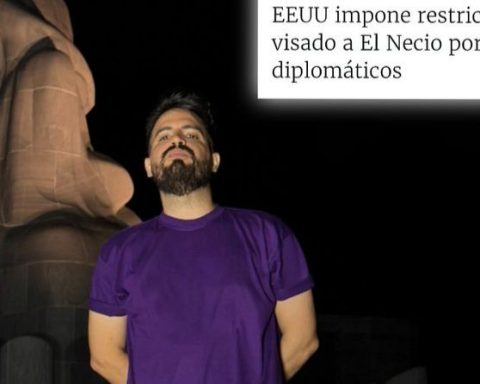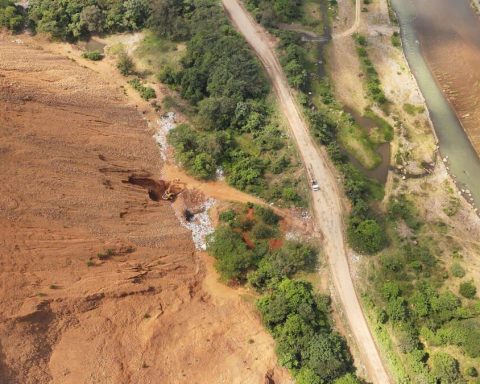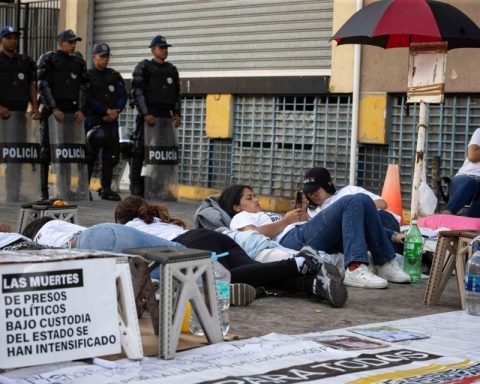The National Government filed this Monday in the Congress of the Republic the bill for the budget of the General Royalties System (SGR) for the biennium 2023-2024, for an amount of $31.3 billion, a figure equivalent to 2.1% of GDP.
(Collection of energy mining royalties totaled 16.8 billion pesos).
Since 2012, this is the budget that has allocated the most resources to the territories, which will greatly favor the gradual and orderly transition towards the decarbonization of regional economies and the inclusive, sustainable and intensive productive transformation in job creation that the country requires in the face of the challenges of the 2030 agenda.
The Minister of Finance and Public Credit, José Antonio Ocampo, explained that the resources of the SGR, together with those allocated from the PGN, have the challenge of leveraging the execution of strategic investment projects within high standards of efficiency, which make it possible to combat corruption and enhance the beneficial effects of public investment for the sake of collective well-being.
(The changes brought by the new General Royalties System).
It should be noted that, in compliance with article 361 of the Political Constitution, this bill favors the decentralization of State monies by assigning a budget for the investment of the territories for $29 billion, of which:
– $7.5 billion They will be assigned directly to producing territorial entities and ports.
– $3.8 billion They will be assigned to the poorest municipalities and will contribute to closing gaps and expanding territorial productive capacities that will allow greater economic and social returns to be obtained from SGR resources.
– $10.1 billion they will be assigned to the departments and regions of the country for the approval of projects with a high regional impact, likely to generate economies of scale in the use of resources. Of these resources, $6.1 billion will be tested directly by the departments.
– $3.0 billion aimed at financing projects in science, technology and innovation, of which $600,000 million must be allocated to projects in science, technology and innovation with an impact on the environment and sustainable development.
– $3.4 billion finance, within the framework of total peace, projects that stabilize and transform the territories most affected by violence, poverty, illicit economies and institutional weakness, and thus achieve the rural development required by the 170 PDET municipalities, part of these resources are already committed to projects approved within the framework of the advance ordered by the constitution.
– $694 billion They will be assigned to the country’s ethnic groups aimed at protecting the rights of indigenous peoples, black, Afro-Colombian, Raizal and Palenquera communities, and the Rom or gypsy people of Colombia.
– $299 billion for the protection and conservation of strategic environmental areas, sustainable development and the fight against deforestation, this purpose will be strengthened by the investment of $599,000 million, which must be guaranteed for this purpose by the country’s poorest municipalities and ethnic communities, as well as such as the $600,000 million that must be allocated to projects in science, technology and innovation with an impact on the environment and sustainable development.
– Cormagdalena will receive $150 billion for investment in the coastal territorial entities of the Río Grande de la Magdalena.
It is noteworthy that savings will be allocated through the Stabilization Funds and Territorial Pension Savings $1.3 billion. Likewise, $299,000 million for the control and surveillance of the execution of SGR resources.
José Antonio Ocampo, Minister of Finance.
EFE
COP 598,000 million will also be allocated for the operation, operation and administration of the SGR; for the control of the exploration and exploitation of deposits; geological knowledge and cartography of the subsoil; the evaluation and monitoring of environmental licensing for non-renewable natural resource exploration and exploitation projects; and for the incentive to exploration and production.
As indicated by the Minister, this bill favors the decentralization of State money, by granting sufficient tools to departmental and municipal leaders to control and invest their resources in projects that support the development of their communities.
(Science and technology will benefit from the royalties).
Efforts will be made to strengthen the institutional mechanisms related to the project approval cycle through methodologies for prioritization. This in order to guarantee the structural impact ordered by the Political Constitution in the territories and improve the integration of the structuring and prioritization system; in such a way that the projects with the greatest impact on the productive transformation of the territories are approved.
In a context of territorial autonomy and fiscal responsibility, it is necessary to strengthen the institutional mechanisms that allow the execution of the SGR budget to be integrated with the PGN through a judicious work of articulation of the territorial development plans and the three pillars of the National Development Plan PND 2022-2026, which revolve around the premises of Total Peace, Social Justice and Environmental Justice, in line with the government program “Colombia world power of life”.
The articulation of national and territorial development plans is a legal mandate that is part of the SGR budget system. In this aspect, the programming of this budget strictly complies with the constitutional and legal mandates that govern the matter; which are contained in articles 360 and 361 of the Political Constitution, Law 2056 of 2020 and the Single Regulatory Decree of the SGR (1821 of 2020).
(Government and departments reach agreement on royalties project).
Faced with the global perspective of an energy transition towards renewable energies, the Minister of Mines and Energy, Irene Vélez Torres, said that “The country faces the challenge of using SGR resources to move, in a gradual and orderly manner, towards the decarbonization of regional and local economies, in line with the Sustainable Development Goals (SDGs), related to the adoption of urgent measures to combat climate change and its effects, without putting their energy security at risk”.
The foregoing implies promoting an economic transformation led by the incorporation of knowledge in production processes, aligned with the energy transition towards renewable sources, as recommended by the international standards of organizations such as the Organization for Economic Cooperation and Development (OECD).
BRIEFCASE
